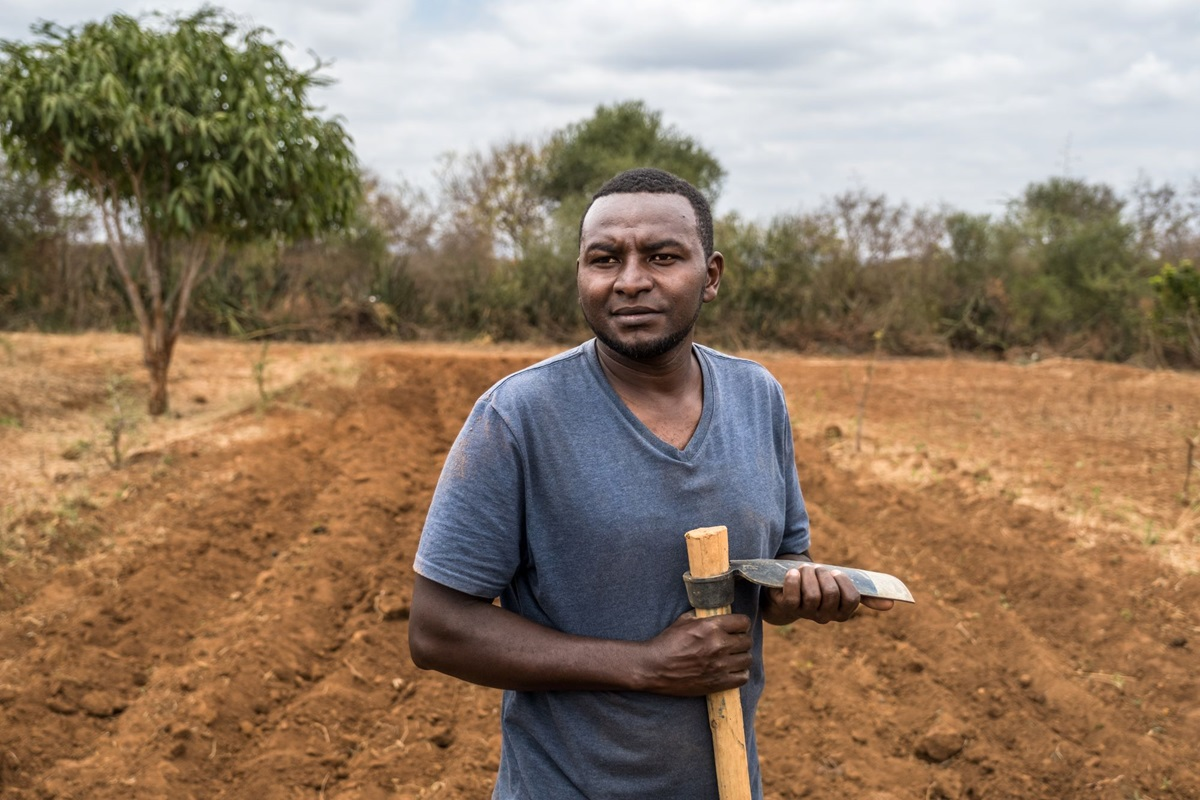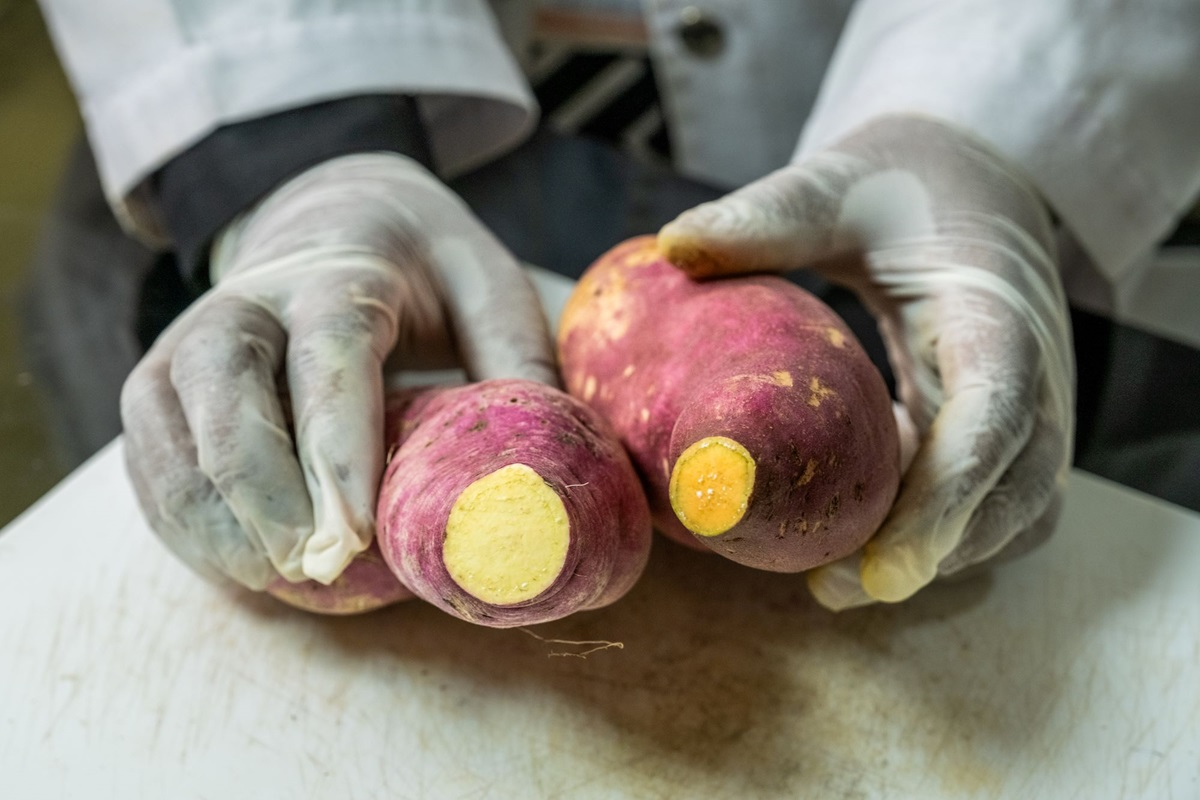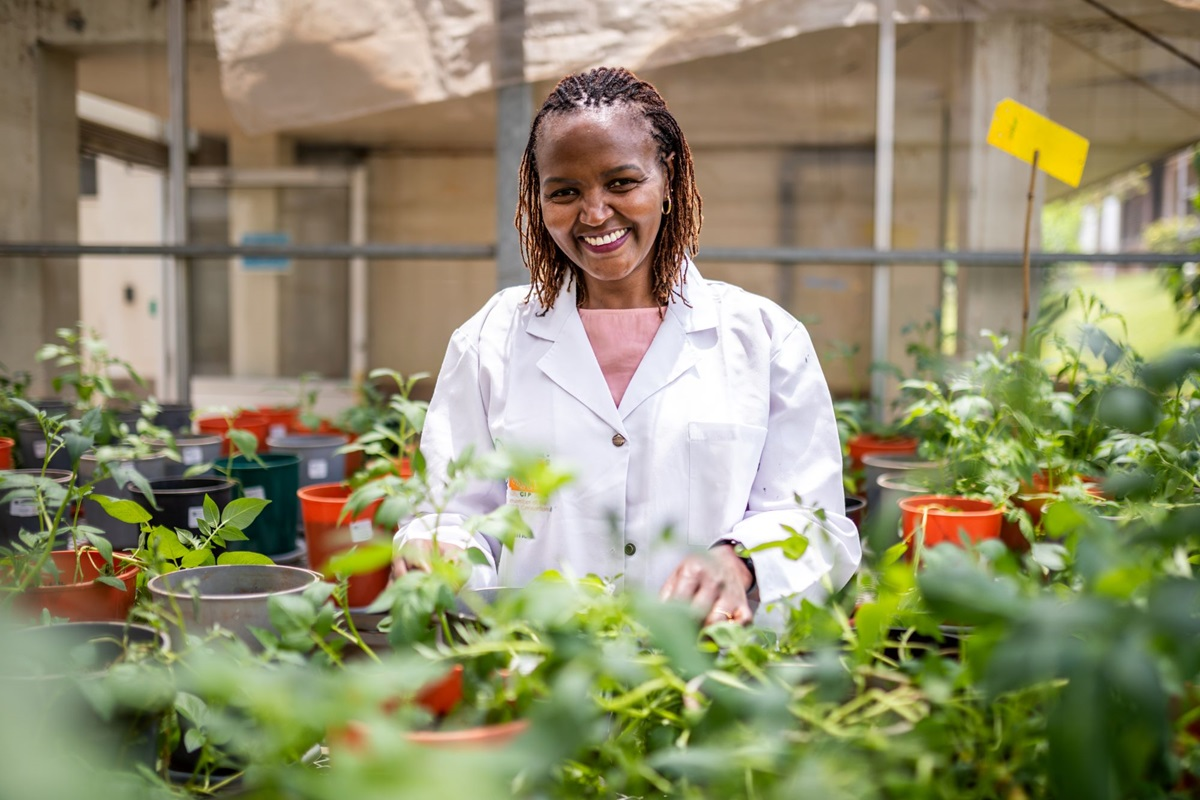It is one of the cruel ironies of climate change's impact that the families and communities least responsible for this global crisis are the ones feeling its most extreme repercussions. Africa accounts for less than 5% of greenhouse gas emissions, yet by 2040, nearly the entire continent is expected to warm by 2 degrees, well above the 1.5 degrees threshold established by United Nations. The effects will be devastating, especially for farmers, whose crops with limited heat tolerance could wither in arid fields.
While multiple global interventions must come together to prevent this future, we already have solutions that can help. I work as a director at the International Potato Center (CIP), which is part of CGIAR, the world’s foremost agricultural research organization (funded in part by the Gates Foundation), and one solution I’m especially optimistic about is a remarkable, vividly-colored root called the orange-fleshed sweetpotato.
Farmers need agricultural solutions to a changing climate
James Mutinda, a farmer in Kenya, explains how rising temperatures and changing weather patterns make it much harder for smallholder farmers like him, who cultivate 80% of the farms and produce 90% of the food in sub-Saharan Africa, to plan and grow a successful harvest. In Kenya, weather patterns have changed and rain no longer falls as it once did. Since 2020, five consecutive rainy seasons have failed, precipitating the worst drought in 40 years. This puts farmers at risk of losing the livelihoods they and their families rely on.

James Mutinda at his farm in Machakos County, Kenya. James shares his ambitions stemming from his passion in sustainable farming. ©Gates Archive/Brian Otieno
This scenario could play out among farming families across Africa, with the effects rippling outward—fewer smallholder farmers means less food security for communities and more people facing poverty and hunger.
Innovative new crops that are both resilient to climate stresses and exceptionally nutritious are helping farmers like James withstand dry seasons. The biofortified orange-fleshed sweetpotato developed at CIP grows abundantly, is tolerant to drought and disease, and comes packed full of micronutrients necessary for growth and development. It matures rapidly and doesn’t require significant amounts of water. It provides fiber, carbohydrates, and potassium and is biofortified with enough vitamin A to protect kids from a dangerous deficiency that can cause blindness, diarrhea, and immune disorders.

Scientist Lucy Mwaura compares the orange-fleshed sweetpotato (R) with a yellow-fleshed sweetpotato (L). ©Gates Archive/Brian Otieno
In 2016, three of my CIP colleagues won the World Food Prize for developing this miracle potato. More than 10 million households across Africa and South Asia are now growing and eating it. In addition, puree made from this superfood has been adopted by bakeries and supermarket chains in several African nations, including Kenya and Malawi, to make nutritious sweetpotato bread and buns, creating additional jobs.
Climate adaptation: A solution for many crop types
The orange-fleshed sweetpotato is just one of many exciting and scalable remedies that my colleagues and I at CGIAR are working on to help smallholder farmers weather the environmental impacts of changing climate.
CGIAR is leading development of multiple high-yield, biofortified, and climate-resistant crops, including rice, maize, and cassava. Since 2004, CGIAR has released more than 350 biofortified crop varieties to more than 50 million people in smallholder farming families across 41 countries. CGIAR also helps farmers gain access to technologies that aid them to predict and prepare for climate stresses such as droughts, floods, and pest infestations. Among other projects, we are working on smart irrigation practices that use less water, technologies that help smallholder farmers obtain affordable insurance, and strategies to address the structural barriers in agriculture and aquaculture that make it harder for women farmers to control assets.
The best way to help [women] adapt to the changing climate is by listening to what they need and developing innovations in response. ----Dr. Joyce Maru
CGIAR relies on equitable partnerships to achieve maximum impact. The National Agricultural Research Systems of different countries, the World Food Program, and many other partners help ensure that CGIAR’s innovative climate solutions reach communities quickly and at scale. Another critical partnership is with farmers themselves, particularly women—because the best way to help them adapt to the changing climate is by listening to what they need and developing innovations in response.
In this regard, James is a particularly important champion. He came to smallholder farming after working in pediatric medicine and seeing how a lack of nutritious foods affected the health of children in his community. He has become a huge proponent of the orange-fleshed sweetpotato and encourages more farmers to take advantage of this nutritious, climate-resilient crop.
Investing in adaptation for climate-resilient crops of the future
I grew up on a smallholder farm in Murang’a County, Kenya where we grew sweet potatoes, and I am delighted and proud to see the crop come full circle. With seven children to feed, it was an extremely handy crop for my parents—you could eat both the roots and the leaves and feed the livestock from the vines. The new fortified variety, with its additional vitamins and improved drought and climate resilience, is especially critical for the many families working and living on small farms.

Dr. Joyce Maru at the International Livestock Research Institute in Nairobi, Kenya. ©Gates Archive/Brian Otieno
When the world convenes at the 2023 United Nations Climate Change Conference (COP28) in December, much of the focus will be on how best to reduce global emissions in wealthy countries—because that, first and foremost, is driving this global climate crisis. But just as important is helping farmers like James continue adapting to climatic changes already felt. Successful adaptation strategies must operate at the nexus of climate, agriculture, health, nutrition and public policies. The orange-fleshed sweetpotato is just one of a wide range of innovative and scalable solutions at that nexus, and if we support their development and expansion, we can make a powerful difference for millions of people.
Joyce Maru is Director of Global Sweet Potato Agri-Food Systems at the International Potato Center (CIP), a CGIAR research center.
Category
The Prize-Winning Sweetpotato Helping Farmers Respond to Climate Change
Contributor
The Prize-Winning Sweetpotato Helping Farmers Respond to Climate Change
Country
Opinion

